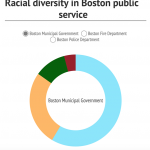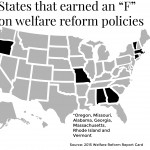As a facet of the City of Boston’s plan to reduce greenhouse gas emissions 80 percent by 2050, Boston Mayor Martin Walsh announced a composting pilot program Friday designed to make composting easier and more accessible to Boston residents.
Beginning Sept. 22, “Project Oscar” will provide five compost collection containers: one in East Boston, one in the North End and three at local farmers markets.
“Composting is important for Boston’s growing urban agriculture movement and meeting our waste reduction goals,” Walsh said in the Friday press release. “This program demonstrates Boston’s commitment to composting and willingness to try new approaches.”
Composting — or collecting and recycling residential food waste into amended soil — is a sustainable practice as compared to using landfills because it entails less greenhouse gas emissions, said Greenovate Boston Sustainability Strategist Leah Bamberger.
“Compost is taking that food and turning it into a useful product that can support urban agriculture, complete that full circle and be used in a way that is much more resourceful,” she said. “Right now, most of the waste in Boston goes to a waste energy incinerator, and it’s a wasteful use of resources to send food that has a lot of energy potential.”
This pilot program will place waste compost containers in some of Boston’s most densely populated neighborhoods, the City of Boston press release stated. Each container is locked and can only be accessed by 200 residents, who will be provided a code to the containers keypad locks. While use is free, Bamberger said the keypad lock system is necessary to ensure that people are composting correctly.
“Participants will have to answer a short questionnaire or quiz so they understand what can go in there and what can’t in order to participate,” she said.
Walsh founded Greenovate Boston to drive participation in sustainable programs that will help the city meet its greenhouse gas reduction goal of 25 percent by 2020, according to the city’s Climate Action Plan, Bamberger said.
“This particular initiative and this whole community compost project was a directive from the mayor,” she said. “He knew there was a demand for it, and really he was the driving force behind making sure that this happened. The Climate Action Plan is essentially the city’s strategy to reaching its greenhouse gas reduction goals. Composting food and waste reduction is an important part of that strategy.”
Boston University works closely with Greenovate Boston on composting and other sustainability-related initiatives, said Sustainability BU’s outreach coordinator Lisa Tornatore.
“Composting and recycling is a great way not only to avoid having so much volume in our landfills and having to build new ones, but it’s a great way to bring old products to a new life,” she said. “Compost really is a form of recycling in that we are able to recycle typical food scraps into soil for use in many applications.”
Composting is an alternative to landfill and incinerator use, both of which are damaging to the environment and potentially harmful to personal health, Tornatore said.
“We have regulations on what can’t go into landfills because it will leach into the groundwater and potentially affect the drinking water and the natural environment,” she said. “Around Greater Boston there are also trash incinerators. When we’re burning our trash, that’s really detrimental to the air we breathe and contributes to public health in terms of asthmatic events and also contributes to overall poor air quality.”
BU has been an active participant in the composting initiative, Tornatore said, noting that food scraps from all BU dining locations that are not national chains are separated and composted, with the exception of foods that are not compostable.
Andy Brooks, president and founder of Bootstrap Compost, a company that picks up compostable goods to lighten the burden of those who choose to compost, said by composting, people are placing value on feedstock and the resources used in harvesting food.
“You’re helping to reduce the release of greenhouse gases into the atmosphere, because landfills inherently do that,” he said. “Composting also releases some of those gases, but does so in a less-detrimental way.”
Composting is becoming increasingly popular, Brooks said, acknowledging that his own company’s growth is an example of the increase in the number of people choosing to compost.
“The rate of our growth suggests that composting is becoming certainly something that people want to participate in,” he said. “We are averaging about two new customers a day. That’s 14 Bostonians per week who decide that composting is for them.”
Several residents said people are more likely to start composting if compost bins are easily accessible.
Khaled Elsaid, 39, of South Boston, said his family composts and they encourage their friends and family to do so.
“We have compost bins in the building we live in,” he said. “This program will be successful, as long as there is additional promotion to raise awareness that this is something that will impact the community as a whole.”
Sabrina Badloe, 29, of Beacon Hill, said though composting has a positive impact on the environment, she has neither the time nor the know-how to do it herself.
“People want to compost, but I think people don’t want to make the effort,” she said. “There’s a certain threshold that they have to cross, and with access to these new collection containers, the threshold is much lower.”




